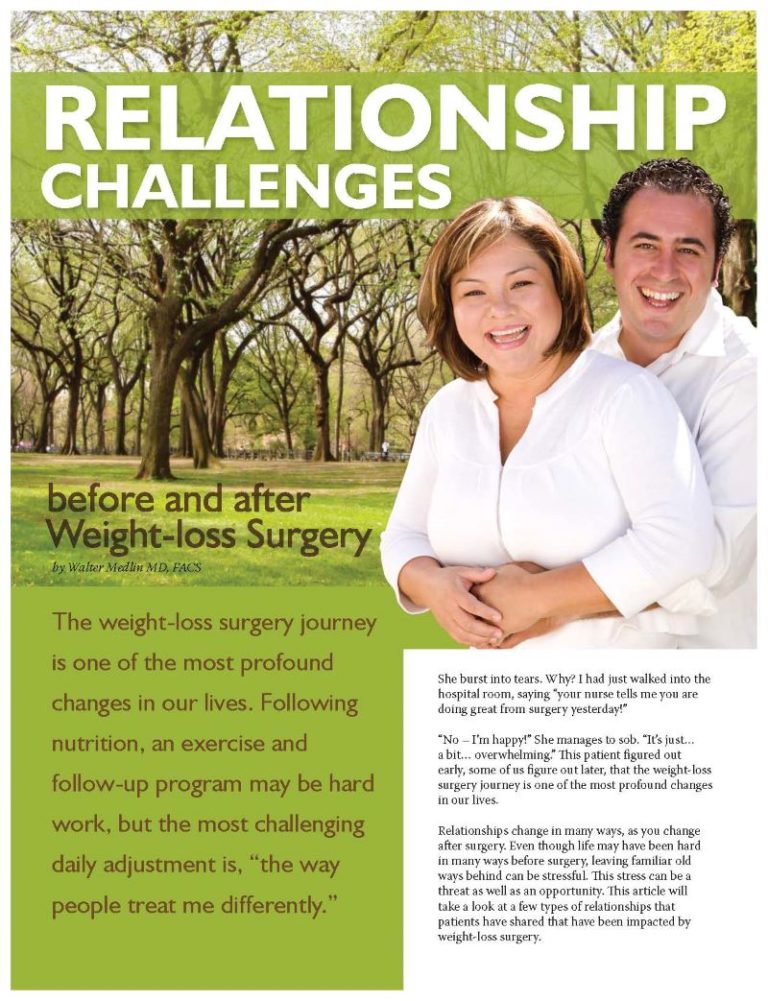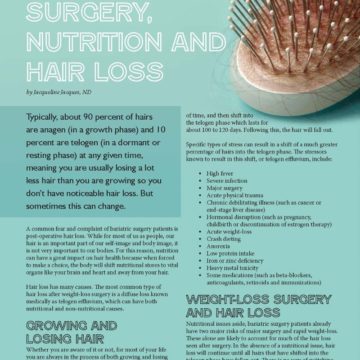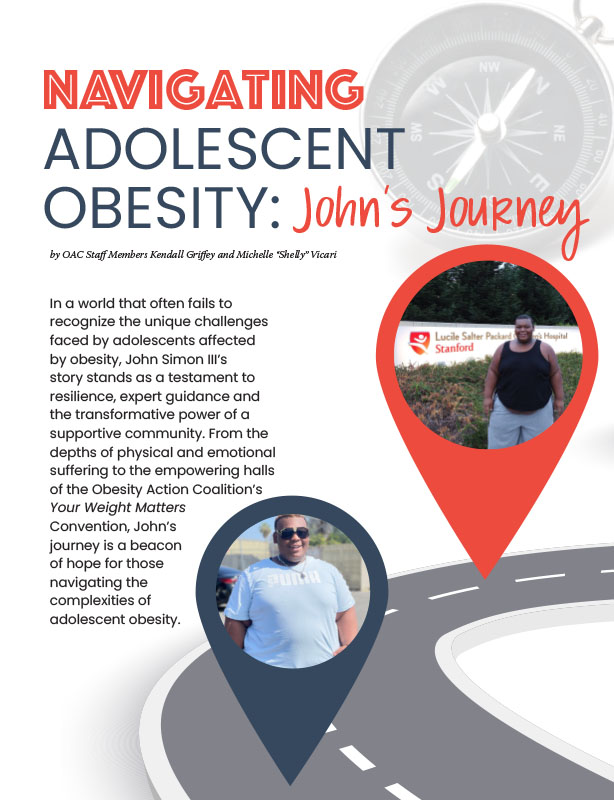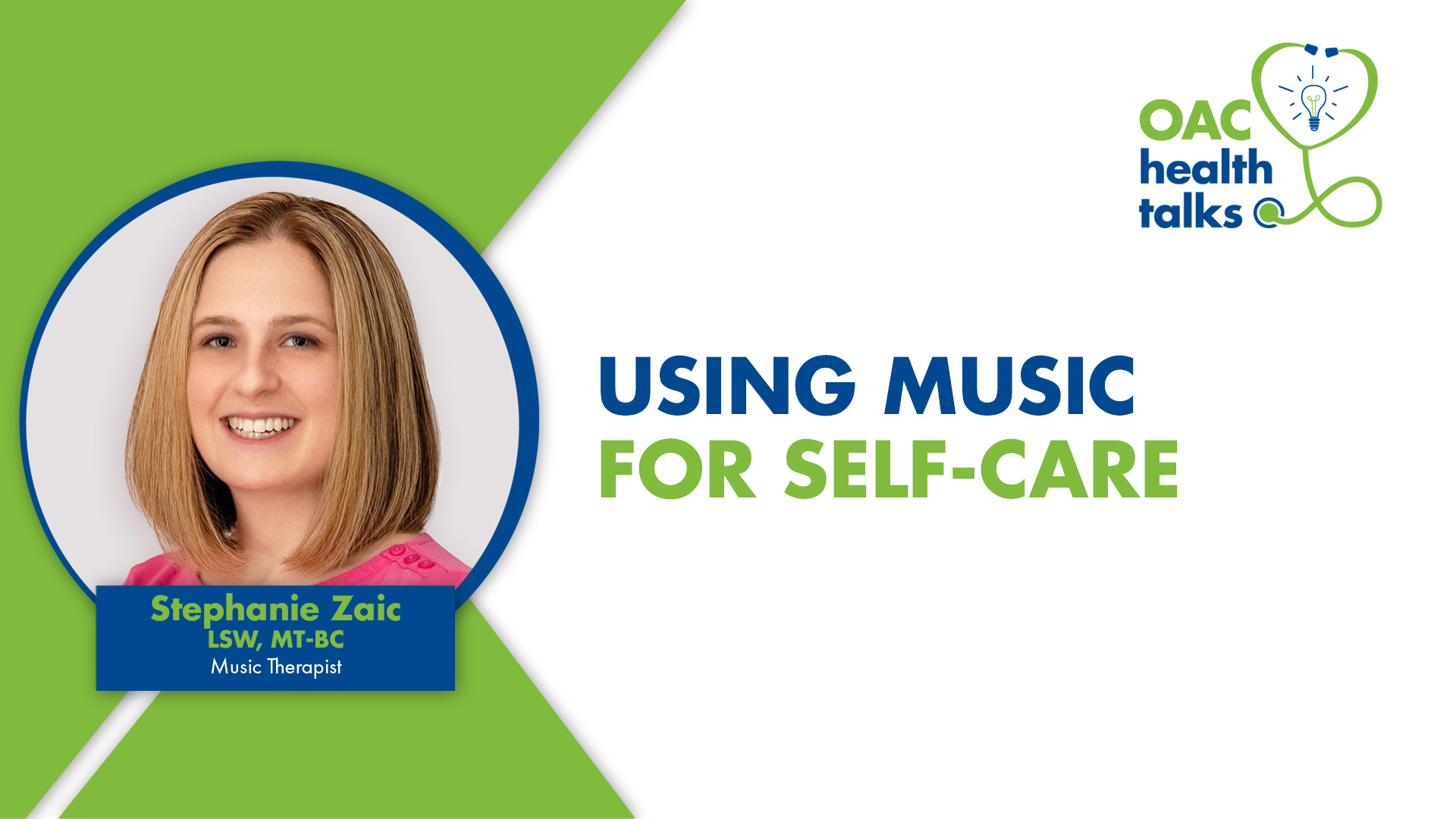Relationship Challenges before and after Weight-loss Surgery


by Walter Medlin, MD, FACS
Spring 2011
The weight-loss surgery journey is one of the most profound changes in our lives. Following nutrition, an exercise and follow-up program may be hard work, but the most challenging daily adjustment is, “the way people treat me differently.”
She burst into tears. Why? I had just walked into the hospital room, saying “your nurse tells me you are doing great from surgery yesterday!”
“No – I’m happy!” She manages to sob. “It’s just…a bit…overwhelming.” This patient figured out early, some of us figure out later, that the weight-loss surgery journey is one of the most profound changes in our lives.
Relationships change in many ways, as you change after surgery. Even though life may have been hard in many ways before surgery, leaving familiar old ways behind can be stressful. This stress can be a threat as well as an opportunity. This article will take a look at a few types of relationships that patients have shared that have been impacted by weight-loss surgery.
Self
Why save the most important for last? If your self-care is lacking, nothing can replace it. So many still follow a self-neglectful or self-berating pattern. Take the time to practice internal messages that console, talking back and taking a stand against your internal critic. Life is tough enough; shame, blame and harshness do not add anything to just taking responsibility, which can be empowering if done in a caring, loving way. Just because we talk about “self” doesn’t mean we have to do it alone. Support groups, therapy or a good program team can help.
Spouse/Significant Other
This is the person with the most at stake for change in your life. They love you, but they are also “losing” some version of you. Some spouses have gotten away with taking advantage of power if you have had to rely on them and may fear you will retaliate with increased freedom and power after obesity no longer limits your financial and relationship prospects. Even if they haven’t taken you for granted, they can be afraid. If they are affected by excess weight, it may feel like a rejection.
Spouses can react in many different ways but they usually adjust if you do. Support groups sometimes invite spouses (most are happy for the perspective) and some programs have separate events for spouses. Many programs now even have a consent process before surgery, which can take some pressure off you to get them to understand the basics.
The fact is, somewhere around half of all marriages in the U.S. end in divorce, and weight-loss surgery patients are not immune. Support groups often say, “strong relationships grow under stress, weak relationships grow apart or fail.” Counseling can usually help when there is friction or dysfunctional communication.
Parents
If your mom is alive, she is probably the toughest to convince. Her “baby” is always going to be the center of her world. This can cloud her ability to do a non-emotional assessment of the risks versus the benefits, even with current overwhelming evidence for most patients.
The second issue can be the reflection on her. Often, moms can have hurt feelings if they perceive that they created the problem (even if you never said such a thing). Don’t give up on parents, because they can really be your “rock” afterwards, even if they never accept the idea fully beforehand.
Dads are so varied, it is difficult to predict. Sometimes they express fear by withdrawing, and that can seem like disapproval. They are often the slowest to share, but can be your most vocal supporter once they see how you are able to use your weight-loss surgery tool functionally.
Children and Siblings
So many different family systems are around today, it is probably hardest to predict how your kids and siblings will react. My mom frosted her hair when I was about 10-years-old, and I didn’t want to talk to her for two days! Why was I upset? I have no idea and probably didn’t then, either. Some get totally focused on the risk of losing you to surgery – be careful to respect their intelligence. If you try to pretend that there is no risk, they won’t respect you, so get them the real information (take them to an info session or support group) and they will come around.
The other issue with kids or grandkids in the home is the grocery shopping and pantry. It may not be fair to ask them to deprive themselves for you, but it is also not fair to you to have to always be tempted. Compromise happens from both sides, and in a loving, functional way. You can likely find some treats for them that don’t appeal as much to you, and they can follow some basic household rules to keep you from temptations.
Work Friends
Watch out for “Frenemies!” There are many types. A very few are truly bigots and should be avoided, but most are simply uninformed, and you can change that by informing them. Some are affected by obesity and feel threatened or jealous. They also admire you, but may not say it. They will greatly respect you if you show reasonable expectations and talk to them about the “tool,” rather than the “cure.”
Old Friends
I know of alcoholics who fell out with all their “drinking buddies” when they went to Alcoholics Anonymous. Luckily, we can still enjoy food with our heavy friends. Sometimes they are surprised to see that you actually eat real food and enjoy it more than before. I have some very caring relatives, however, who honestly feel my health looks worse because I now have more wrinkles and don’t have as much of a “glow.” We do have to acknowledge that many people have mainly been exposed to people getting thin with serious diseases – and that can impact the emotional response early on.
Strangers/New Friends
How do you introduce the issue with people you meet casually? I was on the phone with a physician assistant talking about my practice and he said, “Yeah, we get a lot of fatties here!” It took all my restraint, but I was able to keep my cool. “Well, I had a sleeve gastrectomy myself, and I can tell you it is very effective and safe.” That is certainly not the model start for a great relationship. I will keep working on this guy. Mostly, I have been pleasantly surprised at the acceptance of new acquaintances.
Program Team and Surgeon
Once you are through surgical recovery and the bandages are off, your relationship with the team changes. Our greatest concern is that the patient will become uncomfortable, exposing vulnerability to us, talking candidly about their real issues, or worse yet, be afraid of being judged. We work for you! Don’t forget that most of us went into healthcare to solve problems – you will not disappoint anyone by being honest.
Conclusion
In those post-lottery TV shows (big house, nice car, early retirement), none of those things matter if you don’t have peace with yourself, and even then, it’s pretty lonely without good relationships. High tech medicine doesn’t have anything to do with this important part of a healthy, rewarding life, so we don’t talk about it much. We share different aspects of our life with each of these groups, and each of these groups has something special to offer us, as well. Many times in support groups I have heard, “well, I would never tell anyone else this, because they wouldn’t understand, but…” Cherish those connections; they are the essential fabric of our journey.
Boundary issues can sneak into any relationship. There is a time and place for all types of sharing. Learn to recognize and seize the opportunity, but be respectful of the “body language” of others. Leadership books talk about putting the “right amount of heat” into a relationship. If you are too cool, distant and analytical, nothing much happens, but if the heat of aggression causes things to “boil over” you just end up with a mess.
Patience is probably the most useful tool we have. Stay gentle, stay engaged and stay in touch with all your supporters. Time changes everything, and most difficulties will adjust if you give them time. As they say in support group, “after a while, it’s the same life in different sized clothes.” Your good relationships will still be there, stronger for the challenge!
About the Author:
Walter Medlin, MD, FACS, is an OAC Advisory Board Member and has just opened Pacific Diabetes and Weight-loss Surgery in Bellingham, Washington after directing a Center of Excellence in Minnesota for several years. He struggled with his weight since first grade. After performing hundreds of weight-loss operations, he underwent sleeve gastrectomy in 2008, with outstanding results. Dr. Medlin is also a participating practice in the OAC Sponsored Membership Program where he gives each of his patients a one-year membership in the OAC.
by Nina Crowley, PhD, RD (with Inspiration from Shawn Cochran) Winter 2024 Dating, no matter your age,…
Read Articleby OAC Staff Members Kendall Griffey and Michelle “Shelly” Vicari Winter 2024 In a world that often…
Read ArticleDid you know that stress can have an impact on weight? Many people increase their food intake…
View Video









